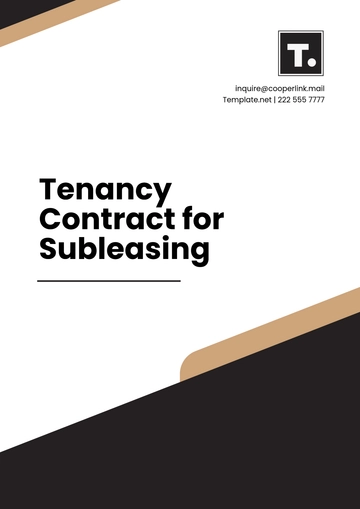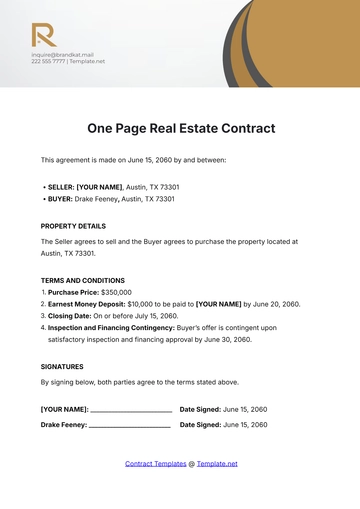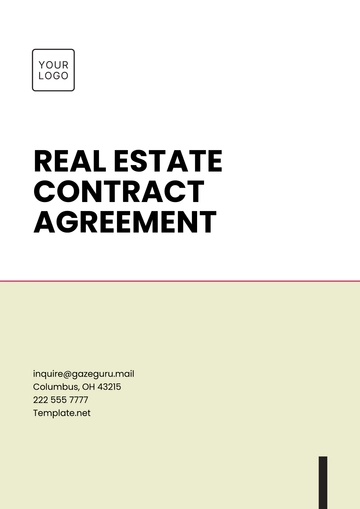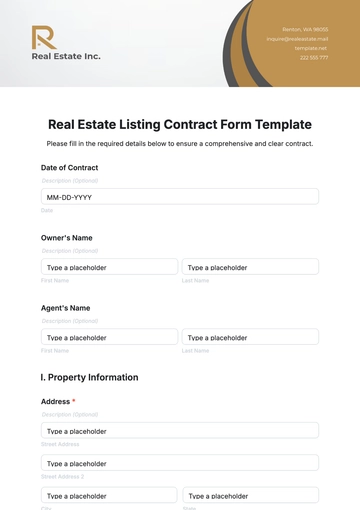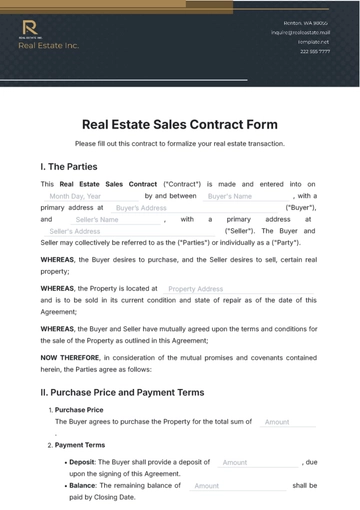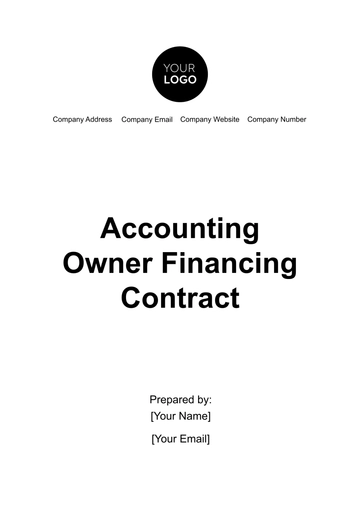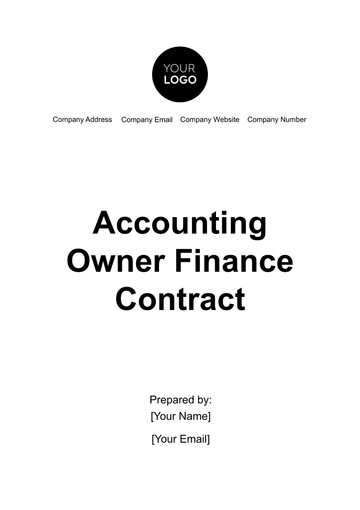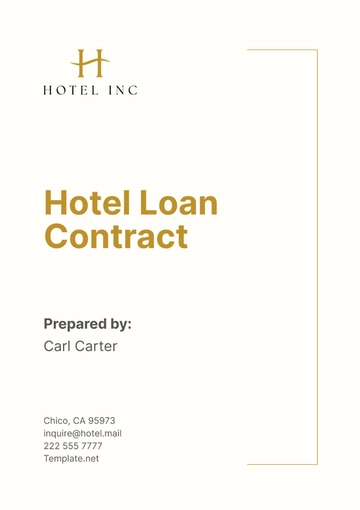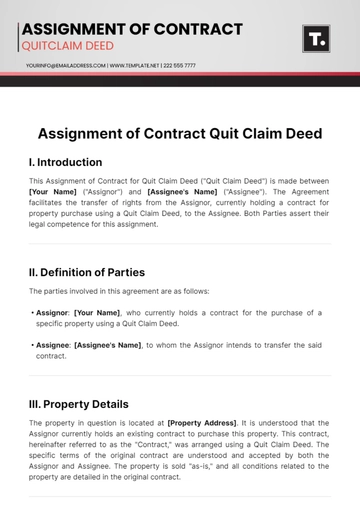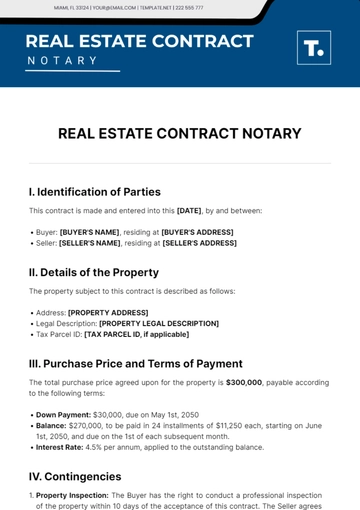Free Real Estate Contract Negotiation and Compliance Guide
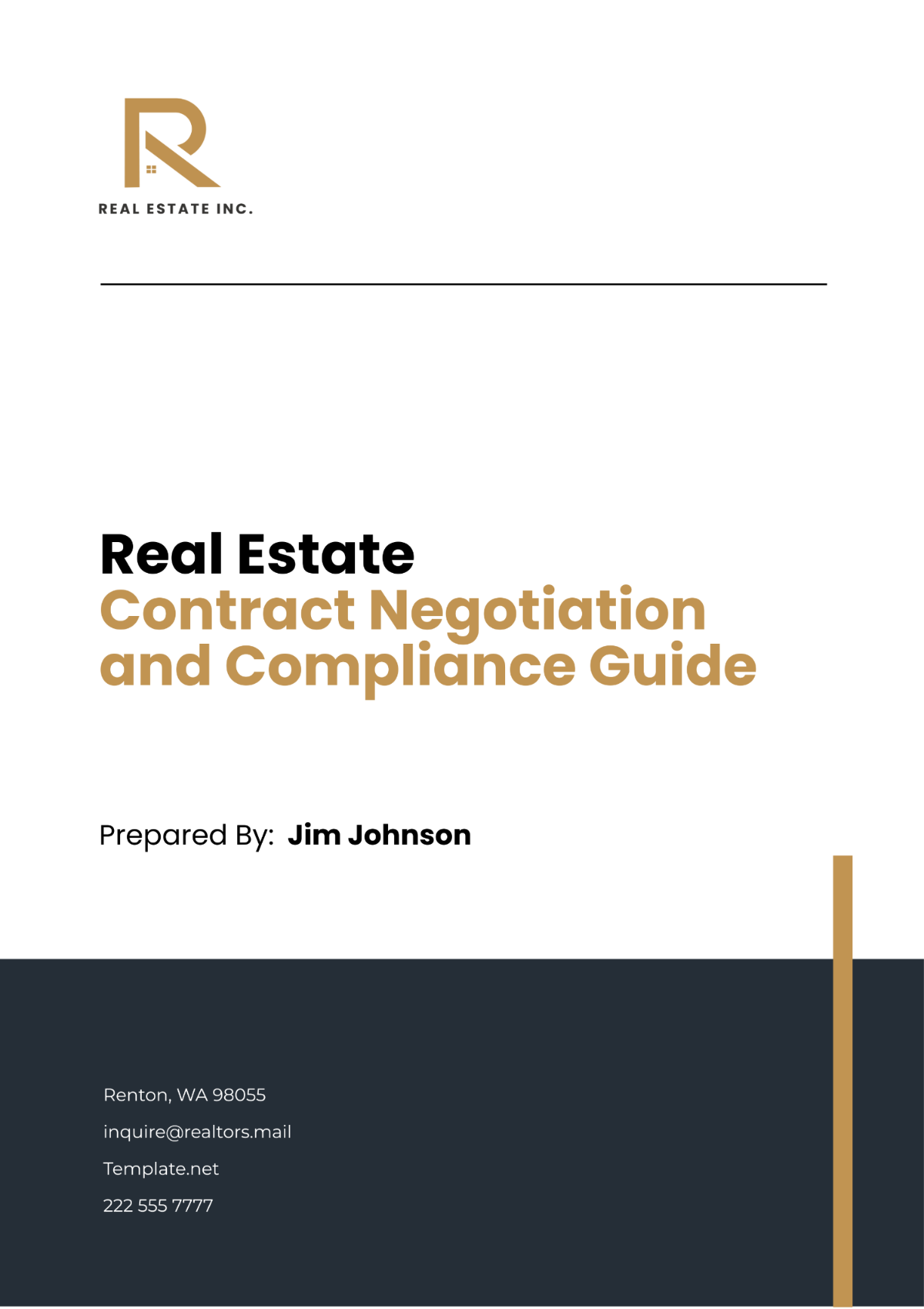
I. Introduction
This [Your Company Name] Real Estate Contract Negotiation and Compliance Guide is a comprehensive resource that aims to provide essential knowledge and strategies to navigate the intricacies of real estate contracts effectively. Whether you are a seasoned professional or a newcomer to the industry, this guide will equip you with the tools necessary to negotiate contracts with confidence and ensure compliance with legal requirements.
II. Negotiation Strategies
In this section, we delve into proven negotiation strategies tailored specifically for real estate transactions. Learn how to effectively communicate with counterparties, identify and leverage negotiation leverage points, and structure deals to achieve your desired outcomes. The effective negotiation strategies include:
Competitive Negotiation: Utilize competitive bidding or multiple offers to create a sense of urgency among buyers or tenants, thereby driving up the price or improving terms.
Collaborative Negotiation: Foster a cooperative atmosphere where all parties work together to find mutually beneficial solutions. This approach focuses on building trust and rapport to achieve consensus.
Principled Negotiation: Based on the principles outlined in the book "Getting to Yes" by Roger Fisher and William Ury, this strategy involves focusing on interests rather than positions, generating options for mutual gain, and insisting on objective criteria to evaluate proposals.
Win-Win Negotiation: Seek outcomes that benefit all parties involved by identifying shared interests and creative solutions that maximize value for everyone.
Positional Negotiation: Take a firm stance on specific positions or demands, often involving a degree of adversarial bargaining to secure favorable terms.
Concession Trading: Exchange concessions or trade-offs to address the priorities and concerns of each party. This strategy involves identifying and leveraging areas where concessions can be made without significantly compromising overall objectives.
Emotional Intelligence Negotiation: Employ empathy, active listening, and emotional intelligence to understand the underlying motivations, emotions, and perspectives of the other party. This approach helps build rapport and facilitates more productive negotiations.
Walk Away Strategy: Establish clear boundaries and thresholds beyond which you are prepared to walk away from the negotiation if terms cannot be met. This strategy can help maintain leverage and prevent agreeing to unfavorable terms out of desperation.
Anchoring: Set an initial offer or reference point (anchor) that serves as a starting point for negotiation. Anchoring can influence subsequent offers and counteroffers, shaping the trajectory of the negotiation.
Information Gathering: Conduct thorough research and gather relevant information about market conditions, property values, comparable transactions, and the motivations of the other party. This knowledge empowers you to negotiate from a position of strength and credibility.
Each of these negotiation strategies has its advantages and may be suitable depending on the specific circumstances of the real estate transaction and the preferences of the parties involved. Effective negotiators often adapt their approach based on the dynamics of the situation and the goals they seek to achieve.
III. Legal Requirements
Navigating the legal landscape is crucial in real estate contract negotiation to ensure compliance with applicable laws and regulations. Understanding the legal requirements involved can mitigate risks and prevent costly disputes. This section provides a comprehensive overview of the key legal considerations in real estate transactions:
A. Disclosure Laws:
Property Condition Disclosures: Sellers are often required to disclose known material defects or issues with the property's condition, such as structural damage, environmental hazards, or plumbing/electrical problems.
Lead-Based Paint Disclosure: Federal law mandates disclosure of lead-based paint hazards in residential properties built before 1978, along with providing buyers with a lead hazard information pamphlet.
Seller Property Disclosure Form: Some states or local jurisdictions may require sellers to complete a standardized disclosure form outlining the property's condition and any known defects.
Agent Disclosures: Real estate agents must disclose their agency relationships with clients, any potential conflicts of interest, and any material facts affecting the transaction.
B. Zoning Regulations:
Zoning Compliance: Ensure that the intended use of the property complies with local zoning ordinances, which regulate land use, building heights, setbacks, and other development criteria.
Permit Requirements: Obtain necessary permits for construction, renovations, or changes in land use to ensure compliance with zoning regulations and building codes.
C. Contractual Obligations:
Meeting of Minds: Ensure that all parties to the contract have a clear understanding of the terms and conditions, and that there is mutual assent or agreement.
Consideration: Contracts must involve an exchange of something of value (consideration) between the parties, such as money, goods, or services.
Legal Capacity: Ensure that all parties entering into the contract have the legal capacity to do so, such as being of legal age and mentally competent.
Statute of Frauds: Some jurisdictions require certain real estate contracts, such as those involving the sale of land or long-term leases, to be in writing to be enforceable.
D. Property Rights:
Title Examination: Conduct a thorough title search to identify any encumbrances, liens, easements, or other restrictions on the property's title.
Title Insurance: Obtain title insurance to protect against defects in title that may arise after the transaction closes, such as undisclosed liens or ownership disputes.
Property Boundaries: Verify the accuracy of property boundaries and descriptions to avoid disputes over property lines.
E. Regulatory Compliance:
Fair Housing Laws: Ensure compliance with federal, state, and local fair housing laws, which prohibit discrimination based on race, color, religion, national origin, sex, familial status, or disability.
Environmental Regulations: Consider environmental factors such as contamination, hazardous materials, or protected habitats, and comply with applicable environmental regulations, such as the Comprehensive Environmental Response, Compensation, and Liability Act (CERCLA) or the Resource Conservation and Recovery Act (RCRA).
IV. Contract Components
A thorough understanding of the essential components of a real estate contract is crucial for drafting comprehensive and enforceable agreements. The contract components are as follows:
Identification of Parties: Clearly specify the names and roles of all parties involved in the contract, including buyers, sellers, landlords, tenants, and any agents or representatives.
Property Description: Provide a detailed description of the property being transacted, including its address, legal description, and any relevant identifiers (e.g., parcel number, unit number).
Purchase Price or Rental Terms: Outline the agreed-upon purchase price for sales contracts or rental terms for lease agreements, including any deposit or earnest money requirements.
Contingencies: Specify any conditions or contingencies that must be met for the contract to be binding, such as financing contingencies, inspection contingencies, or the sale of another property.
Closing Procedures: Detail the steps and timeline for completing the transaction, including the date of closing, prorations of taxes and utilities, and the transfer of possession.
Seller Disclosure: Include any required disclosures by the seller regarding the condition of the property, known defects, or environmental hazards.
Financing Terms: If applicable, outline the terms of financing, including the type of loan, interest rate, down payment, and any provisions for seller financing.
Tenant Responsibilities: For lease agreements, specify the responsibilities of the tenant, such as maintenance obligations, utilities, and compliance with lease terms.
Landlord Responsibilities: Conversely, detail the responsibilities of the landlord, including property maintenance, repairs, and compliance with applicable laws and regulations.
Additional Provisions: Include any additional terms, conditions, or provisions specific to the transaction, such as warranties, dispute resolution mechanisms, or penalties for breach of contract.
By incorporating these essential components into the contract, parties can ensure clarity, enforceability, and mutual understanding of the terms and conditions governing the real estate transaction.
V. Risk Management
By effectively managing risks throughout the real estate transaction process, parties can minimize potential losses, protect their interests, and enhance the likelihood of a successful outcome.
Due Diligence: Conduct thorough inspections, research, and analysis to identify potential risks and liabilities associated with the property, including title issues, environmental hazards, and structural deficiencies.
Insurance Coverage: Obtain appropriate insurance policies, such as property insurance, liability insurance, and title insurance, to mitigate financial risks and protect against unforeseen events.
Legal Review: Seek legal guidance from qualified professionals to review contracts, agreements, and regulatory compliance to ensure adherence to legal requirements and mitigate legal risks.
Financial Analysis: Perform financial analysis and risk assessments to evaluate the viability and profitability of the transaction, considering factors such as market conditions, financing options, and potential returns on investment.
Contingency Planning: Include contingency clauses in contracts to address unforeseen circumstances or events that may impact the transaction, such as financing issues, property defects, or changes in market conditions.
Documentation: Maintain accurate and comprehensive records of all aspects of the transaction, including contracts, correspondence, inspections, and financial documents, to provide documentation and support in the event of disputes or litigation.
Risk Mitigation Strategies: Implement proactive strategies to mitigate identified risks, such as negotiating warranties and indemnities, obtaining professional inspections, or structuring the transaction to limit exposure to potential liabilities.
Compliance Monitoring: Stay informed of changes in regulations, laws, and industry standards that may impact the transaction, and ensure ongoing compliance with all applicable legal and regulatory requirements.
VI. Compliance Checklist
Use the following checklist to ensure compliance with legal and regulatory requirements throughout the real estate transaction process:
Pre-Contract Phase:
Verify the legal capacity of all parties involved in the transaction.
Confirm that the property is accurately described and identified in the contract.
Ensure that all required disclosures, such as property condition disclosures and lead-based paint disclosures, are provided to the buyer or tenant.
Determine compliance with zoning regulations and obtain necessary permits for the intended use of the property.
Confirm that the contract meets the requirements of the Statute of Frauds by being in writing and signed by all parties.
Contract Execution Phase:
Review the contract to ensure that all essential terms and conditions are clearly stated and understood by all parties.
Verify that the contract includes any necessary contingencies, such as financing contingencies or inspection contingencies.
Confirm that all parties have provided consideration (something of value) to support the contract.
Ensure that all parties have signed the contract and that signatures are properly witnessed or notarized, if required.
Comply with any specific contractual requirements, such as the delivery of earnest money or the performance of due diligence.
Closing Phase:
Verify that all closing documents are properly prepared and executed, including the deed, bill of sale, and any financing documents.
Confirm that all necessary funds, including the purchase price and closing costs, are available and properly disbursed.
Record the deed and other relevant documents with the appropriate government office to finalize the transfer of ownership.
Ensure compliance with any escrow requirements for holding and disbursing funds until all conditions of the contract are met.
Provide copies of all relevant documents to all parties involved in the transaction, including buyers, sellers, and agents.
Post-Closing Phase:
Obtain title insurance to protect against defects in title that may arise after the transaction closes.
Confirm that all necessary tax filings, such as property transfer taxes or recording fees, have been completed and submitted.
Retain copies of all documents and records related to the transaction for future reference and documentation.
Address any post-closing obligations or contingencies specified in the contract, such as repairs or adjustments to the purchase price.
By systematically completing this compliance checklist at each stage of the real estate transaction process, you can ensure adherence to legal requirements, minimize risks, and facilitate a smooth and successful transaction for all parties involved.
VIII. Conclusion
In closing, the team at [Your Company Name] hopes that this Real Estate Contract Negotiation and Compliance Guide has provided you with valuable insights and practical strategies to navigate the complexities of real estate transactions with confidence and proficiency. By mastering negotiation techniques, understanding legal requirements, and implementing effective risk management practices, you can optimize outcomes and mitigate potential liabilities in your real estate endeavors.
At [Your Company Name], we are committed to empowering our clients with the knowledge and resources they need to achieve their real estate goals while ensuring compliance with legal and regulatory standards. Whether you are a seasoned professional or a newcomer to the industry, we are here to support you every step of the way. Thank you for entrusting us as your partner in real estate contract negotiation and compliance. We look forward to assisting you in all your future real estate endeavors.
- 100% Customizable, free editor
- Access 1 Million+ Templates, photo’s & graphics
- Download or share as a template
- Click and replace photos, graphics, text, backgrounds
- Resize, crop, AI write & more
- Access advanced editor
Streamline contract negotiations and ensure compliance with Template.net's Real Estate Contract Negotiation and Compliance Guide Template. Customizable in our AI Editor Tool, this easily editable template provides comprehensive guidance on navigating contract negotiations and meeting regulatory requirements. Elevate your negotiation skills, mitigate risks, and uphold professionalism effortlessly with Template.net!
You may also like
- Rental Contract
- Contractor Contract
- Contract Agreement
- One Page Contract
- School Contract
- Social Media Contract
- Service Contract
- Business Contract
- Restaurant Contract
- Marketing Contract
- Real Estate Contract
- IT Contract
- Cleaning Contract
- Property Contract
- Supplier Contract
- Partnership Contract
- Food Business Contract
- Construction Contract
- Employment Contract
- Investment Contract
- Project Contract
- Payment Contract
- Student Contract
- Travel Agency Contract
- Startup Contract
- Annual Maintenance Contract
- Employee Contract
- Gym Contract
- Event Planning Contract
- Personal Contract
- Nursing Home Contract
- Law Firm Contract
- Work from Home Contract
- Software Development Contract
- Maintenance Contract
- Music Contract
- Amendment Contract
- Band Contract
- DJ Contract
- University Contract
- Salon Contract
- Renovation Contract
- Photography Contract
- Lawn Care Contract



